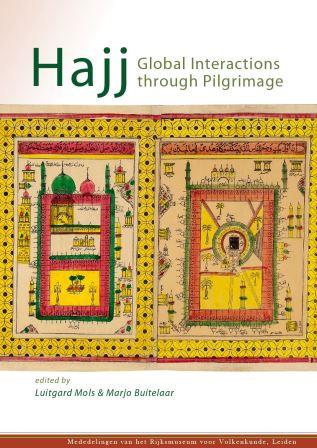Mecca as the centre of globalization: the Hajj today
Marjo Buitelaar is Associate Professor of the Anthropology of Islam. The compilation Hajj: Global Interactions through Pilgrimage , which she compiled with co-editor Luitgard Mols of the National Museum of Ethnology in Leiden, is due to be published in 2015. The book portrays the presentations given by academics from various disciplines at a symposium of the same name last year in Leiden. They included anthropologists, historians and specialists in Islamic studies, as well as musicologists and men and women of letters. They all took turns to shed light on the Hajj, the pilgrimage to Mecca, each from their own field of expertise.

Meaning
Marjo Buitelaar: ‘The aim of this compilation is to show how all kinds of customs and rituals, but also material aspects, of the pilgrimage have changed over time, and how this enables us to see the religious, political and socio-cultural meaning of the Hajj in a range of different historical and cultural contexts. As an anthropologist, I study what rituals mean today to various groups or individuals, not only in the religious sense, but also in relation to socio-political relations and identity issues. Take this example: a lot of women go on the Hajj these days, whereas it used to be mainly men. And out of respect for your parents, you only went on the pilgrimage once they had been; this is not the case today. In addition, it’s no longer unusual to visit Mecca several times, whereas it used to be a once-in-a-lifetime trip.’
Not a static ritual
‘The Hajj has become increasingly accessible, particularly to people from the West. In fact it’s rather like a type of ‘religious tourism’. Some three million Muslims from around the world now take part in the ritual. A quota system has been introduced to control the influx. In many countries where Islam is the majority religion, you have a one in six chance of being granted a visa. This allocation policy is susceptible to corruption. The pilgrimage ritual itself continues to develop, as does the city of Mecca. On the other hand, Mecca is a fabulous example of a place where ‘global interactions’ have been taking place for centuries. Something else that hasn’t changed, despite today’s more individual notion of religiousness, is the idea that the Hajj extends much further than the individual; the entire family and community become involved. Farewell parties are held and people identify with the pilgrim. On returning, the pilgrim hands out souvenirs and water from the holy source, and people get together to eat dates from Medina.’
Home and belonging
Marjo Buitelaar was recently awarded a substantial grant by the Netherlands Organisation for Scientific Research (NWO) to fund her Hajj research project Mecca: more magical than Disneyland. The research is particularly important as it sheds light on the significance of Islam in people’s personal lives. As she says, ‘The Hajj is important to Muslims living in the West, as it helps them to answer questions like ‘Where do I belong?’ Many European Muslims feel at home in several different places at once; they live here, go to their home country on holiday and see Mecca as a spiritual homeland symbolizing the unity of the global Muslim community. Insight into these simultaneous, diverse feelings of home and belonging could help to understand why rebel fighters feel compelled to join the Syrian Civil War in the name of Islam.’
Less strange
‘To the majority of Muslims, Islam is a personal source of inspiration and strength. Some people visit Mecca after a particularly difficult period in their life, to recharge their batteries, or to pray for the sick. In view of the recent publicity surrounding the negative aspects of Islam, it is important to highlight this side of the religion. It helps to make Islam seem less strange. Everyone can identify with these feelings, and with the urge to find answers to the vital questions of life and death.’
You can order the book on: www.sidestone.com
More news
-
06 January 2026
Connecting with history
